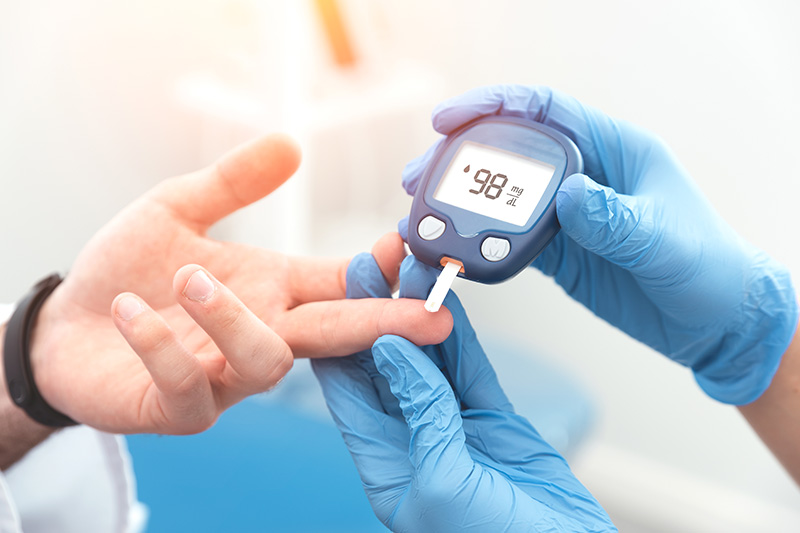Diabetes
Diabetes is a disease which occurs when blood glucose, or blood sugar, is too high. Blood glucose is the primary source of energy, and it comes from the food that we eat. The pancreas produces a hormone called insulin. Insulin helps you get glucose from your food into the cells to be used for energy. Sometimes your body doesn’t make enough or any insulin or doesn’t use insulin properly. Glucose will remain in your blood and will not reach your cells. Type 1, type 2 and gestational diabetes are the most common types of diabetes.
Type 1 diabetes
In 1 diabetes, your body does not make insulin. The immune system attacks and destroys the cells that produce insulin in your pancreas. This kind of diabetes is generally diagnosed in young adults and children, although it may occur at any age. People with type 1 diabetes have to take insulin daily to stay alive.
Type 2 Diabetes
In type 2 diabetes, your body will not make or use insulin properly. You may develop type 2 diabetes at any age, even in childhood. However, this type of diabetes occurs usually in middle-aged people and older people. Type 2 is the most common type of diabetes.
Gestational diabetes
Gestational diabetes happens to some women while they are pregnant. Most of the time, this type of diabetes disappears after the baby is born. However, if you have gestational diabetes, you have a higher chance of developing type 2 diabetes later in life. Type 2 diabetes is sometimes diagnosed during pregnancy.
Symptoms of diabetes
- Increased thirst and urine
- An increase in hunger
- Fatigue
- Blurry vision
- numbness or tingling of the legs or hands
- Sores that do not heal
Sudden and unexplained weight loss
Symptoms of type 1 diabetes could develop quickly in a matter of days. Symptoms of type 2 diabetes usually develop slowly — over a few years and can be so mild that a person might not even notice them. Many people with type 2 diabetes often have no symptoms at all. Some people do not find out that they have a problem until they have diabetes-related health problems, such as heart problems or blurred vision.
There are different causes for each type of diabetes.
Type 1 Diabetes
There is no sure cause of type 1 diabetes. For some reason, the immune system wrongly attacks and destroys the insulin-producing beta cells in the pancreas. Genes may play a role in certain people. It is also possible that the virus will trigger an attack on the immune system.
Type 2 Diabetes
Type 2 diabetes is a combination of genes and lifestyle factors. Being overweight or obese increases your risk. Carrying extra weight, especially in your stomach, makes your cells more resistant to the effects of insulin on your blood sugar. It is a hereditary condition.
Gestational diabetes
Gestational diabetes is a result of hormonal changes in pregnancy. Placenta produces hormones that make the cells of a pregnant woman less sensitive to the effects of insulin. It can cause high blood sugar levels during pregnancy.
Treatment
Type 1 Diabetes
Insulin is the primary treatment for type 1 diabetes. It replaces a hormone that the body is unable to produce.
Type 2 Diabetes
Diet and exercise can help some people with type 2 diabetes. If lifestyle changes aren’t enough to lower the blood sugar, you’ll need to take medication. Some individuals with type 2 diabetes also take insulin. You will need to monitor your blood sugar levels several times a day during pregnancy. If it is high, dietary changes and exercise may or may not be enough to bring it down.





